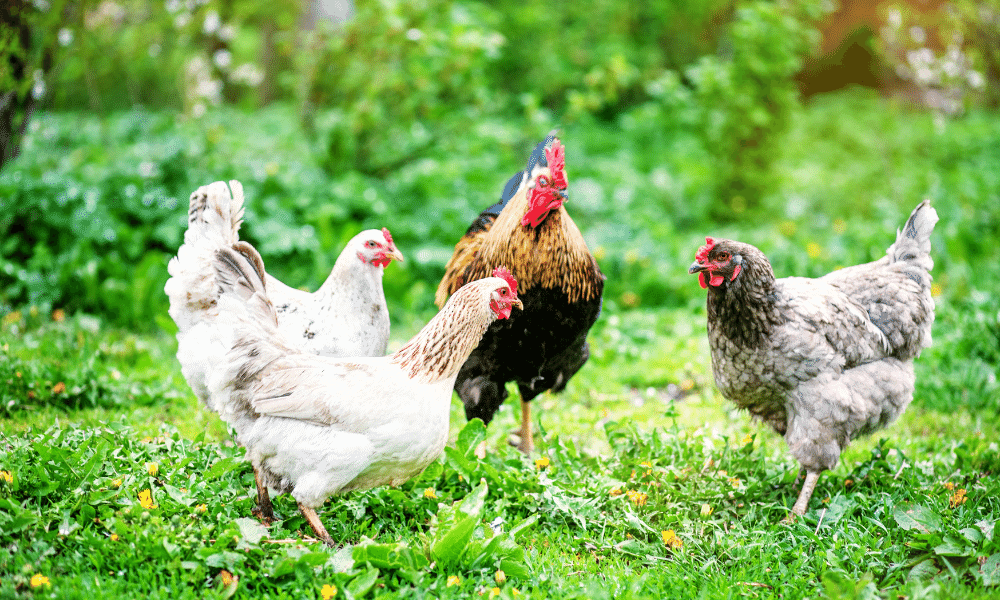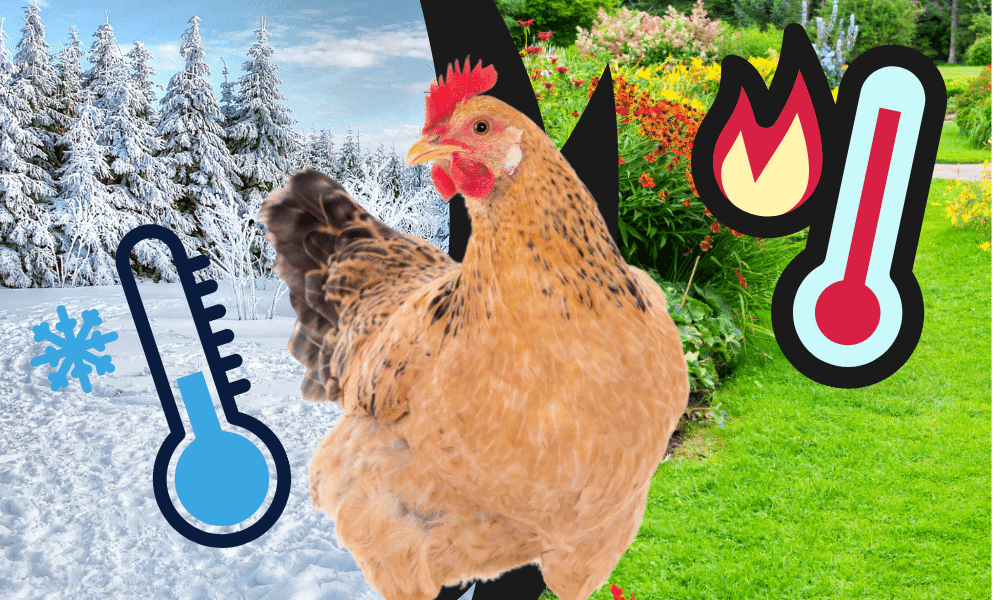Despite the fact that humans have been classifying animals for centuries, often compared as warm-blooded or cold-blooded. But, there are some that fall into a gray area.
For example, it’s fairly obvious that a cow would be warm-blooded, and a lizard would be cold-blooded, right? But what about the humble chicken?
Well, the classification of these ‘descendants from dinosaurs’ isn’t exactly common knowledge.
So, to remove any doubt in your mind: here’s whether chickens are cold-blooded or warm-blooded and what it means for their behavior.
Are Chickens Cold-Blooded?
Cold-blooded refers to the general classification of an animal that relies on its environment to control its temperature.
It doesn’t necessarily mean that the animal’s blood is cold! It simply means the animal will have to use its environment to find its optimal temperature, instead of generating heat or cooling using bodily functions.
These are mostly animals such as snakes or lizards.
Although it’s often joked that they are descended from dinosaurs, chickens are NOT cold-blooded. A chicken is able to regulate its body temperature itself, allowing it to adapt more easily to its environmental conditions.
Are Chickens Warm-Blooded?

Being warm-blooded, in simple terms, includes those animals that regulate their own body temperature to help keep a healthy, consistent “warm” temperature.
Being members of the fowl family, chickens are warm-blooded. This means they are able to self-regulate their own temperatures to maintain a consistent 40-42°C/105-107°F optimal for egg production and their bodily functions.
Sure, chickens are able to use the environment to their advantage too, like lying in the sun, digging holes and sitting in them, or generally avoiding snow!
The advantage of chickens being warm-blooded is that they are able to keep their temperature consistent through the hot months of summer and the cool months of winter.
How Do Chickens Regulate Body Temperature?
Because chickens are warm-blooded, they have to actively control their internal body temperature to around 40-42°C/105-107°F.
This means when it’s too cold or too hot, your chickens will change their behaviors to regulate their temperature. Of course, chickens can still utilize their environment to help, but they also have a few distinct behaviors to help out.
How Do Chickens Cool Themselves Down?
Like many other bird species, chickens regulate their body temperatures by expelling excess heat through their respiratory system.
You may notice your chicken will spread its wings and pants, breathing in and out quickly. Although this can look alarming, it’s natural for your chickens to do it. Still, it’s one of the signs your chickens are too hot.
Chickens will also try and seek the shade of course, so make sure you’ve got plenty around during summer.
How Do Chickens Heat Themselves Up?

If chickens get too cold, they will actively seek out warmth. This is usually in the confines of their coop.
Aside from simply moving to a warmer place to heat themselves up or sunbathing, chickens will also puff out their feathers, creating an insulation bubble, not allowing the cold air through their feathers to touch their body.
You might even see your chickens tuck one of their legs up into their feathers too, to minimize the cold air on their skin!
Lastly, and perhaps the most relatable action chickens take to heat themselves up is through consuming food. Extra protein in the winter will really go a long way in keeping your chickens warm. You might even see them eating feathers off the ground!
Try feeding them high-energy and high-protein foods like scrambled eggs, high-protein seeds, or even pork fat.
Can Chickens Get Too Hot or Cold?

Even though chickens can change their behaviors to help cool or heat their body temperature, it’s not almighty.
Chickens are capable of getting too hot or getting too cold, both of which at extreme levels can be fatal.
This is why it’s vital to look out for your chickens when you’re ever in extreme weather, cold or hot.
What’s more, a chicken’s ability to regulate its temperature often comes down to diet, age, or the presence of illness. So you can account for this when you are looking after old, young, or sick chickens.
But, there are some chickens that are known to be more cold-hardy than others, so if you live in extreme cold you could raise a chicken that’s naturally resistant, like Buff Orpingtons.
In Conclusion
So, although chickens are many things, they are not cold-blooded. Chickens, being part of the fowl family, are warm-blooded.
This means chickens are able to maintain and regulate their body temperatures, controlling it to an optimal “warm” heat for all their bodily functions.
Still, if a chicken does feel too cold or too hot, it can use its environment to help too, like cozying up in the coop, or lying in the shade when it’s too hot.
Nonetheless, in extreme weather conditions, you should always take extra care, and make sure your flock is well equipped to fight the temperatures.
